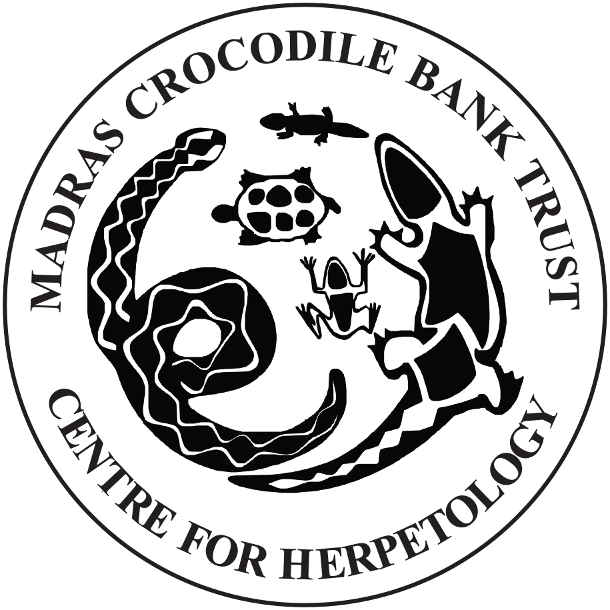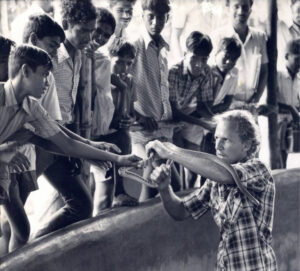
Rom Whitaker conducting a venom extraction demonstration at the Irula’s Cooperative in Chennai, India.
The Centre for Herpetology at the Madras Crocodile Bank in Chennai (Tamil Nadu), India, has been GSI’s India chapter since 2009. Founded by internationally renowned herpetologist and GSI advisor Romulus “Rom” Whitaker, they’ve been at the forefront of the snakebite mitigation issue for the better part of 50 years. Rom may be familiar to many; after all, he’s been a regularly featured face on snakes and snake conservation on everything from the Discovery Channel to National Geographic.
Long before snakebite gained attention on the global stage, Rom and his dedicated team advocated for victims and policy and passionately promoted the harmonious coexistence between snakes and humans. Community education, awareness filmmaking, improving treatments, and the production of venoms for India’s antivenom manufacturing have been at the core of their mission.
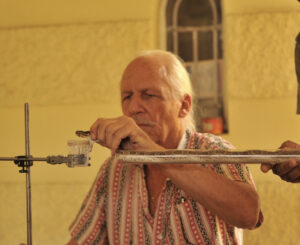
Rom Whitaker collecting venom at the Irula’s Cooperative at the Madras Crocodile Bank in Chennai, India.
Rom opened India’s first snake park in 1972 and, by 1978, co-founded the Madras Crocodile Bank, a center of research education and conservation in southern India. It was also in the 1970s, while extracting venoms for a national antivenom manufacturer, that Rom came into contact with the Irulas tribe. The Irulas had an incredible knack for catching snakes by tracking their movements, but the tribe was in desperate need of income. That gave Rom an idea. The Irulas could catch the snakes and do what Rom did so well — collect their venoms! After several years of bureaucratic hurdles, the Irulas were in business. Long-housed at the Madras Crocodile Bank, the Irulas currently produce 80% of the venoms sold to Indian antivenom manufacturers, with profits split amongst the tribal community. While the work comes with obvious dangers for the Irulas, the lives saved by their efforts each year can’t be overlooked.
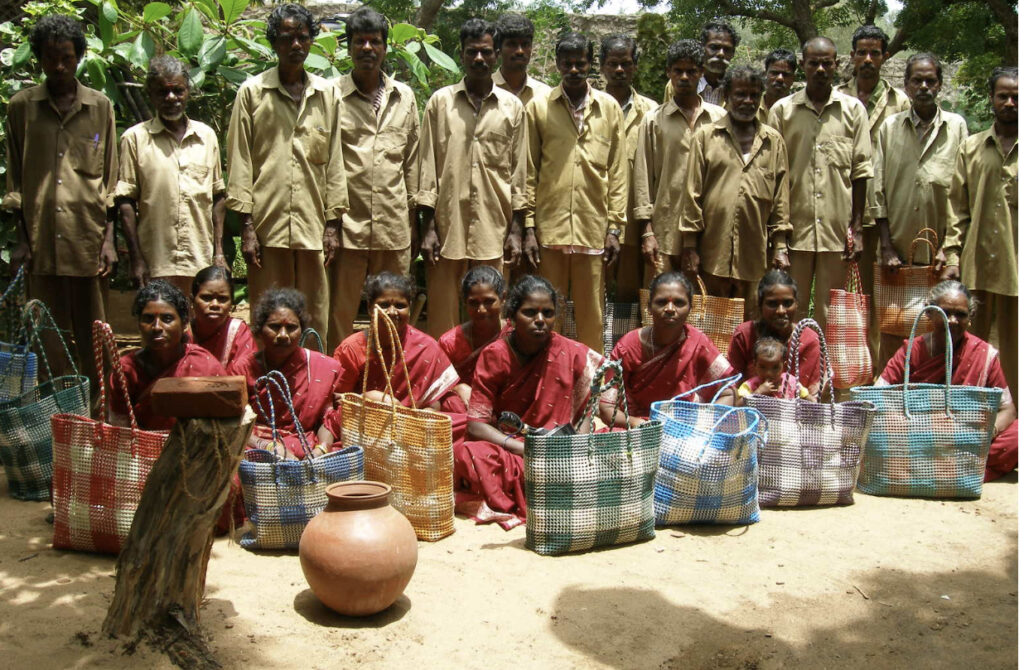
Members of the Irulas tribe.
Today, Rom’s team at the Centre for Herpetology is on the frontlines of bringing education messaging to rural communities at risk of snakebite throughout Tamil Nadu with a full suite of printed materials, films, and the painting of prevention murals in villages, while never giving up the push to train snake handlers and forest department staff to rescue and relocate snakes. Their extensive network of educators and herpetologists put them in a perfect position to conduct the largest-ever snakebite education program throughout some of India’s most snakebite endemic regions where prevention messages and community engagement have never reached.
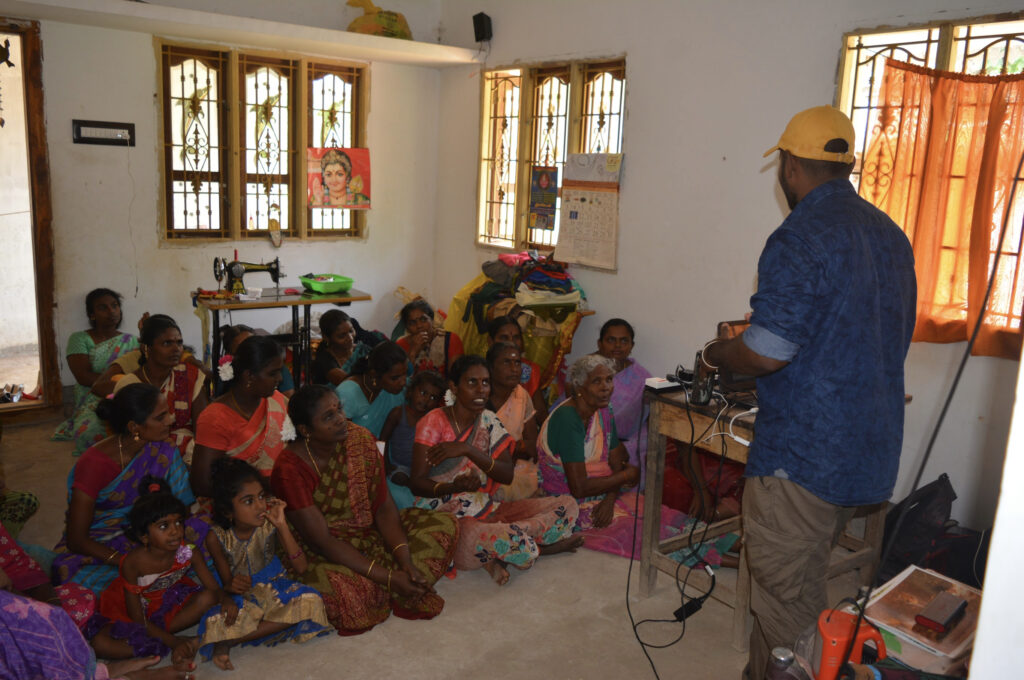
A community-based snakebite education session with rural mothers and daughters.


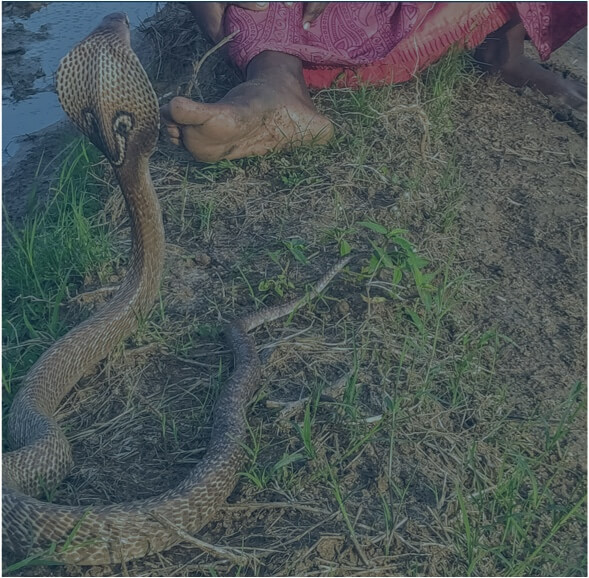
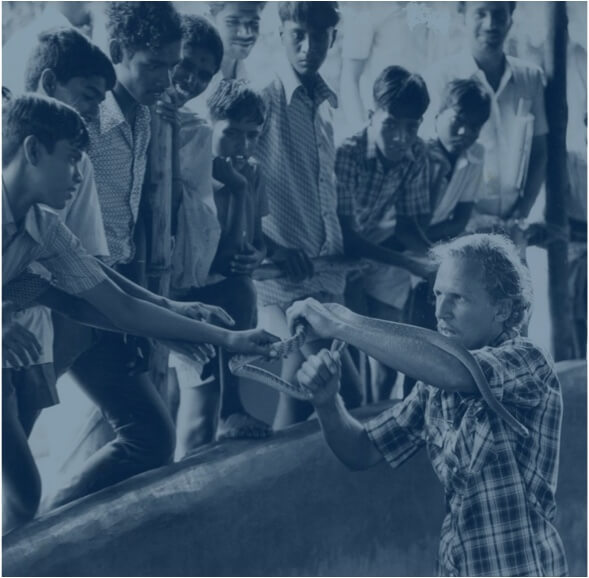
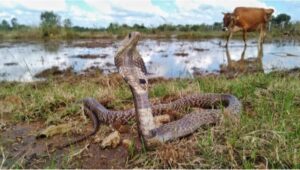

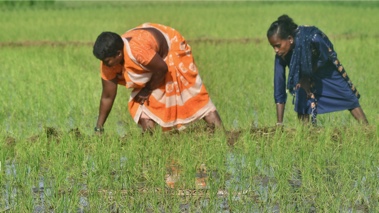
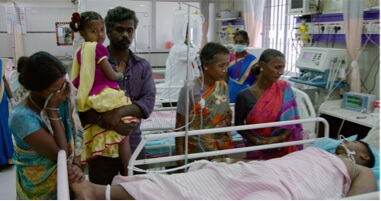




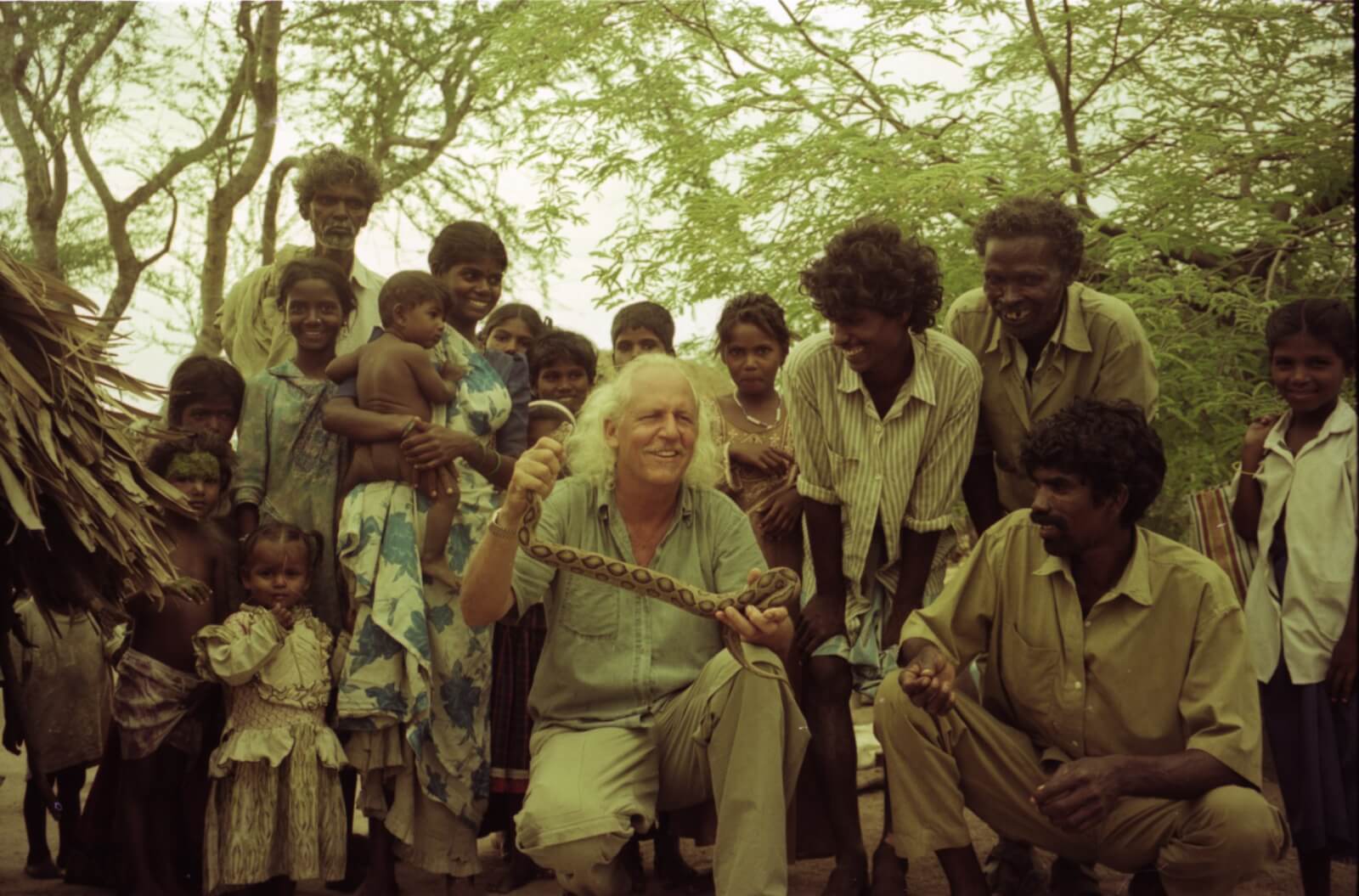
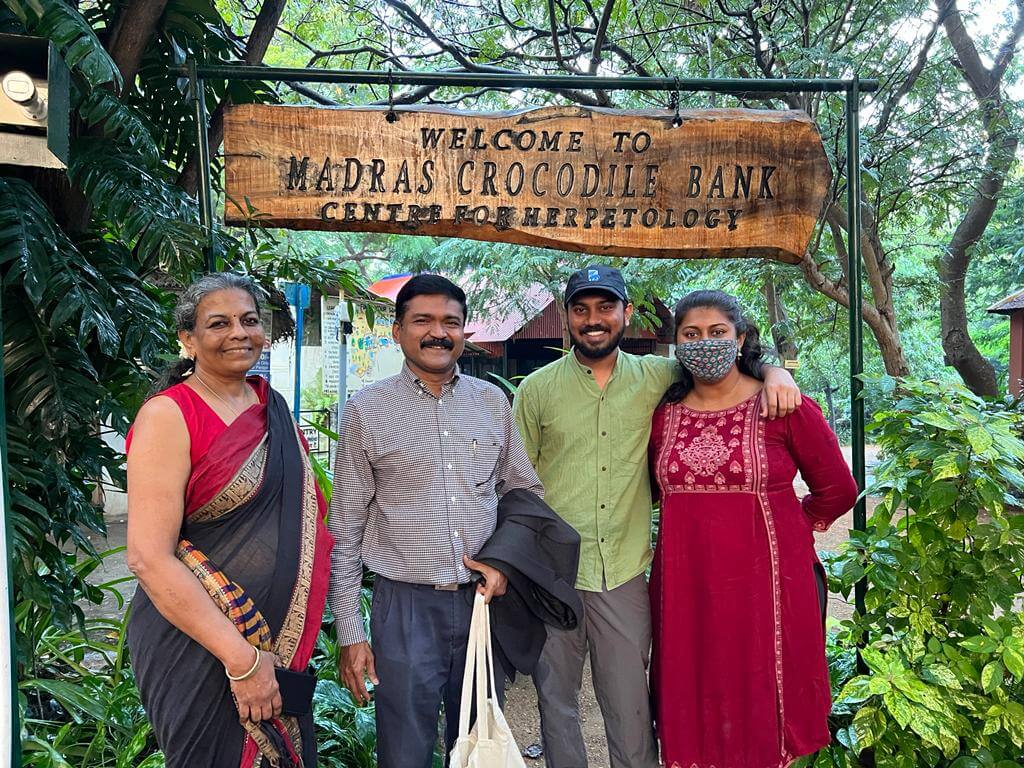
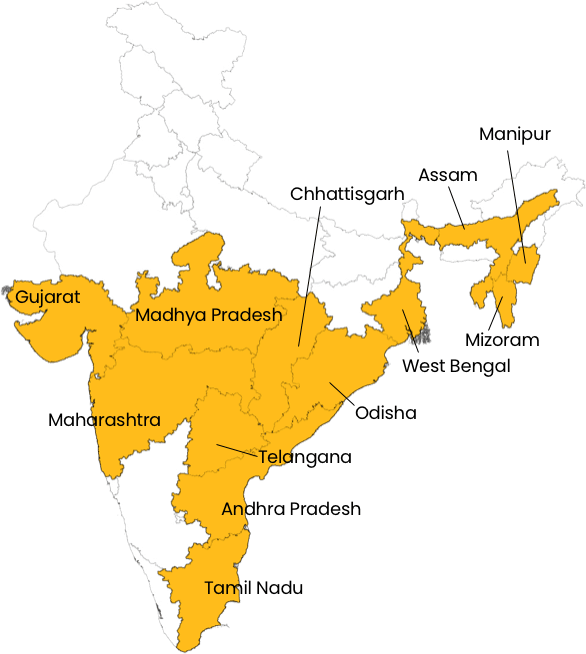
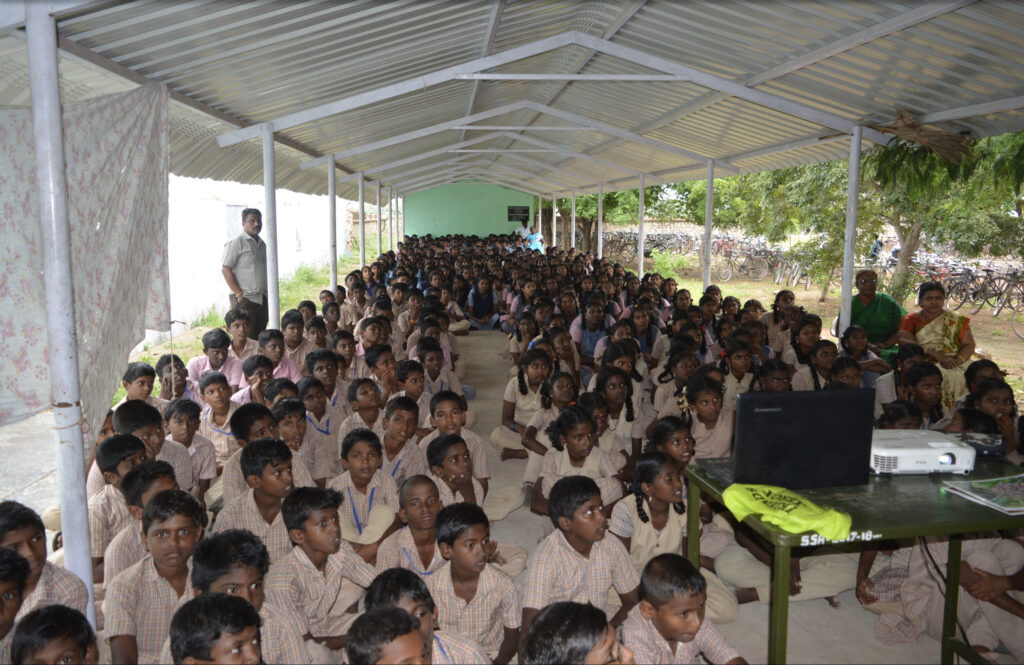
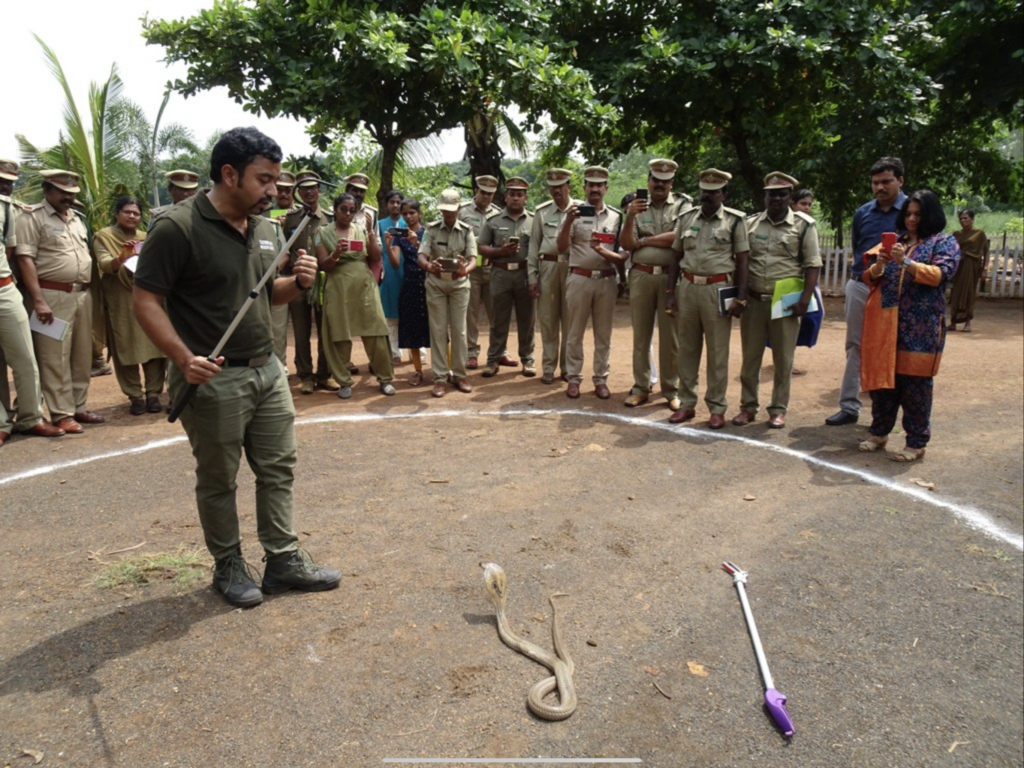
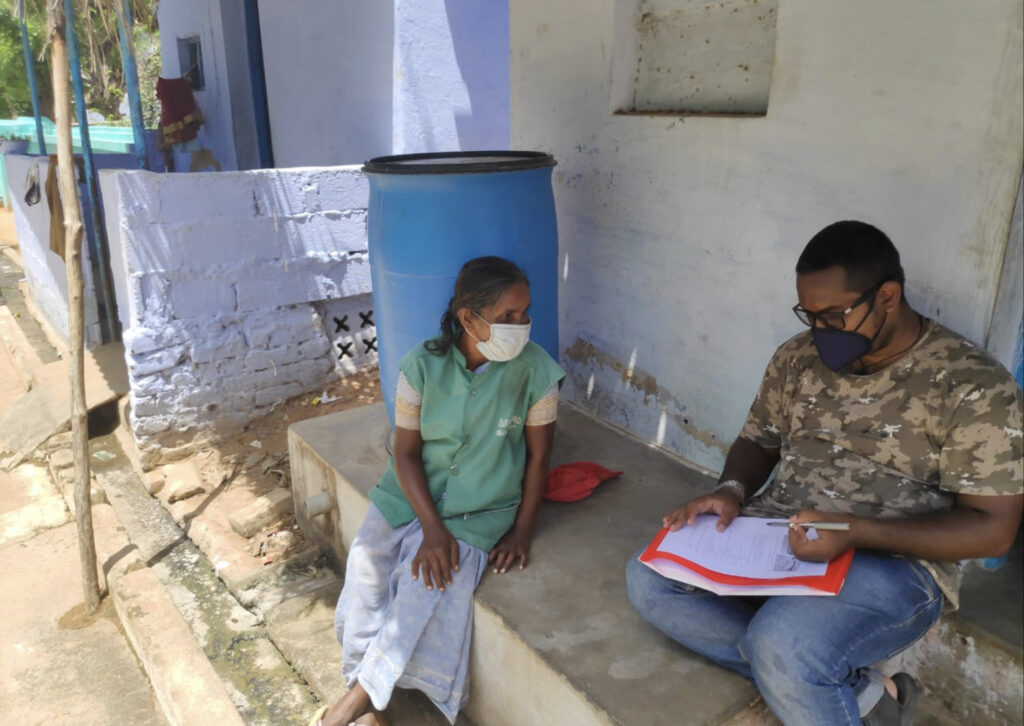

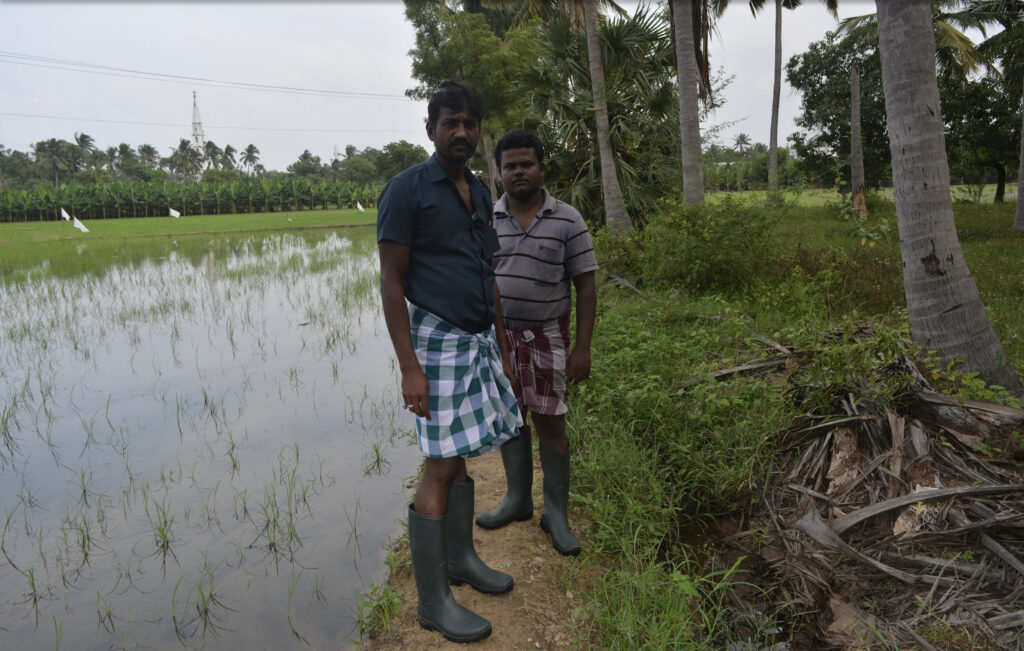
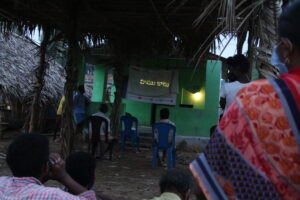 Rom and the team have been passionate about disseminating short films as a prevention tool and they’re the best form of education, both for in-person programs and through social media and WhatsApp distribution. These informative, engaging and often dramatic shorts are already made and translated. Funding is needed to dub them into 11 critical languages to reach rural populations, with two films in areas of Northeast India never before reached.
Rom and the team have been passionate about disseminating short films as a prevention tool and they’re the best form of education, both for in-person programs and through social media and WhatsApp distribution. These informative, engaging and often dramatic shorts are already made and translated. Funding is needed to dub them into 11 critical languages to reach rural populations, with two films in areas of Northeast India never before reached.